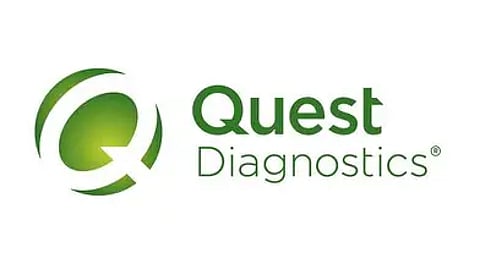

Quest Diagnostics, a leading provider of diagnostic information services, has introduced a new pharmacogenomic (PGx) laboratory testing service that helps healthcare providers understand how an individual’s genetics may influence their response to specific medications. The innovation is designed to guide drug selection and dosing decisions across multiple specialties, including psychiatry, neurology, cardiology, oncology, rheumatology, pain management, and transplant medicine.
"Healthcare providers recognize the crucial, yet often complex, role that genetics can play in drug response. This impact may be heightened when polypharmacy is part of the treatment equation," said Steven Keiles, general manager, US Specialty Genetics and Genomics Services at Quest Diagnostics. "Our goal for this PGx offering from Quest Diagnostics and Coriell Life Sciences is to help providers more efficiently leverage genetic insights to help guide prescription decisions and decrease trial-and-error while improving outcomes."
Research suggests that PGx testing can prevent therapeutic failures and adverse drug interactions (ADIs), reduce unnecessary drug costs, and lower expenses linked to drug-related complications.
Quest’s new PGx panel covers 17 genes and 4 HLA alleles known to have strong gene-drug associations and proven clinical utility. The test is guided by recommendations from expert groups such as the Clinical Pharmacogenetics Implementation Consortium (CPIC), the U.S. Food and Drug Administration (FDA), and ClinPGx, ensuring evidence-based insights in a single assay.
The service provides two options:
A comprehensive Quest report with genotype (diplotype) and predicted phenotypic response, combined with an integrated medication guidance report powered by Coriell Life Sciences (now InformedDNA).
A streamlined version offering only the genotype and predicted phenotypic response.
Clinicians also gain access to GeneDose LIVE, a clinical decision support platform from Coriell Life Sciences, which evaluates the patient’s entire therapeutic regimen for both genetic and non-genetic risks. This ensures a dynamic, holistic approach to prescribing decisions.
"Working with Quest, InformedDNA's goal is turning genetic results into better health outcomes. Our reporting translates complex genetic data into clear guidance on which medications are most likely to be for each patient," said Dr. Jeffrey Shaman, vice president of medical affairs, InformedDNA. "Together, we're giving providers the tools they need to deliver truly individualized care that improves treatment success and optimizes initial medication choices."
Patients can undergo testing with a doctor’s requisition at one of Quest’s 2,000 service centers across the U.S., or via its at-home phlebotomy collection service for greater convenience.
PGx testing examines variations in drug-metabolizing enzymes, drug transporters, and target proteins, which can determine whether a patient metabolizes a drug too quickly, too slowly, or not at all. Such variations can increase the risk of treatment failure or ADIs—one of the leading causes of mortality in the U.S.
The PGx offering is backed by InformedDNA’s acquisition of Coriell Life Sciences, combining expertise in applied genomics with innovation in pharmacogenomics. Together, the organizations aim to expand access to precision medicine, reduce healthcare costs, and improve outcomes.
Quest Diagnostics continues to work across the healthcare ecosystem, providing actionable diagnostic insights that enable patients, physicians, and organizations to make informed decisions for better health.